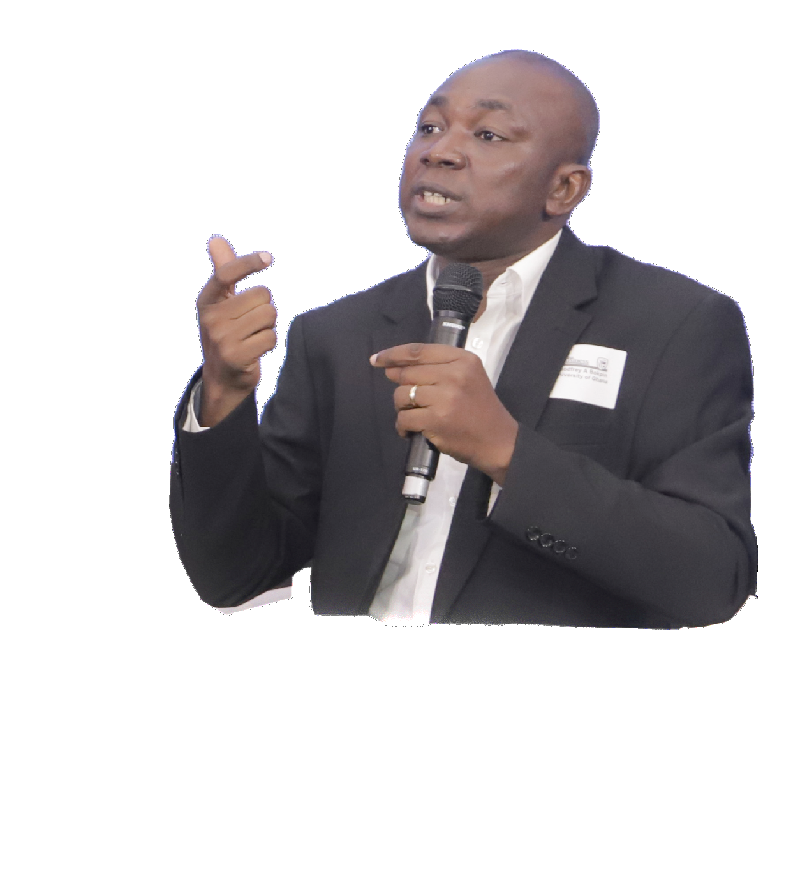
Brace for ‘haircut’ on investment: It’s unavoidable — Prof. Bokpin
“Let us brace for a possible ‘haircut’ on our investments because it is an unavoidable option to ensure debt sustainability.”
“The question is: On whose head will the ‘haircut’ be? Will it be the government or the investor?”
This is the position of Economist and Professor of Finance at the University of Ghana, Professor Godfred Bokpin, on the raging debate on how the country should deal with its debt levels to be able to secure a programme from the International Monetary Fund (IMF).
Prof. Bokpin said from the baseline understanding, the country’s debt was unsustainable and the IMF programme would insist that something be done about it.
He said the situation also required some painful fiscal adjustment which would affect everyone, thus making a ‘haircut’ almost unavoidable.
A haircut refers to a lower-than-expected value placed on a debt security by the issuer. He said this in an interview on the sidelines of the Graphic Business/Stanbic Bank Breakfast Meeting which was held on the theme: “17 Times too many! What should we stop doing and start doing as a people?”
The theme for the thought-leadership meeting was in reference to the country approaching the IMF for a bailout for the 17th time.
Context
The call comes at a time when thousands of investors are yet to fully recover from the shock arising from the financial sector cleanup which saw many banks, savings and loans, and fund management companies collapse.
It is also on the back of the World Bank’s Africa Pulse Report which estimates that the country’s debt to gross domestic product (GDP) will hit about 104 per cent by the end of the year, signaling a debt overhang.
Since President Nana Addo Dankwa Akufo-Addo allayed the fears of the investing public about any possible haircut on their investments, there has been mixed reactions with experts in economics and finance skeptical about the President’s comment.
In the last few weeks, some investors have, in a panic mode, moved to their fund managers to disinvest in various instruments such as mutual funds and fixed income portfolios.
The development forced the Securities and Exchange Commission to issue a directive to the fund managers not to refuse any investor their due but use mark to market valuation method to calculate their claim to save those who are not disinvesting from being shortchanged.
Further explanations on haircut
Prof. Bokpin explained that the baseline understanding was that the country’s debt was unsustainable and with an IMF programme, something needed to be done about it.
“What you need to do can take the form of purely fiscal adjustment, in other words, looking at expenditure cuts and revenue enhancement, but if you look at that alone, the level of fiscal adjustment will be so steep that it will be unbearable.
He said the government might, therefore, be forced to also look at its debt operations which would mean that a ‘haircut’ was inevitable.
“This is to say there will be investor losses, either it will affect the interest payments or principal, but if you look at it carefully, the interest component is huge and that is what is crowding out priority spending and private sector investments so it looks likely, the haircut will affect the interest payments and not the principal,” he explained.
Austerity measures
Prof. Bokpin said the government needed to put in place austerity measures to ensure that the country came out of this economic crisis within the next two to four years.
“Let’s not kid ourselves, it’s just because the government is not telling us everything and that is why the President is saying there will be no ‘haircuts’ but it seems unavoidable.
“The reality on the ground is that the country needs to go through some painful fiscal adjustment in the next two to four years in order for the state to balance its books,” he said.
Prof. Bokpin said for that to happen, the state must take from individuals and businesses.
Fiscal adjustments
The economist urged the government to implement fiscal adjustment policies that would not cause social unrest in the country.
He stressed the need for the government to reduce its size considerably, restructure state owned enterprises, and embark on some governance reforms immediately while negotiating with the IMF.
He said failure to do so would mean that in order to claw back to a more sustainable level, the government would have to load everything on debt operations which might cause investors to lose more.
Building local capacity
For his part, the Greater Accra Chairman of the Association of Ghana Industries (AGI), Tsonam Cleanse Akpeloo, said about 70 per cent of items used in the country were imported.
“What we need now is a strong productive economy that is highly industrialised and allows the citizenry to participate in production and consume what we produce,” he said.